Taiwan Tech students win 9 Red Dot Awards, Four-Time Asia-Pacific Design Champion.
Known as the “Oscars of the Design World”, the German Red Dot Design Award attracts thousands of entries from around the globe each year. This year, Taiwan Tech students delivered outstanding performances, with two works winning the “Best of the Best” award and seven works receiving the Red Dot Award (Winner). Taiwan Tech has claimed the top spot in the Red Dot Design ranking for Asia-Pacific universities for the fourth consecutive year, showcasing the students’ rich creativity and exceptional design abilities.
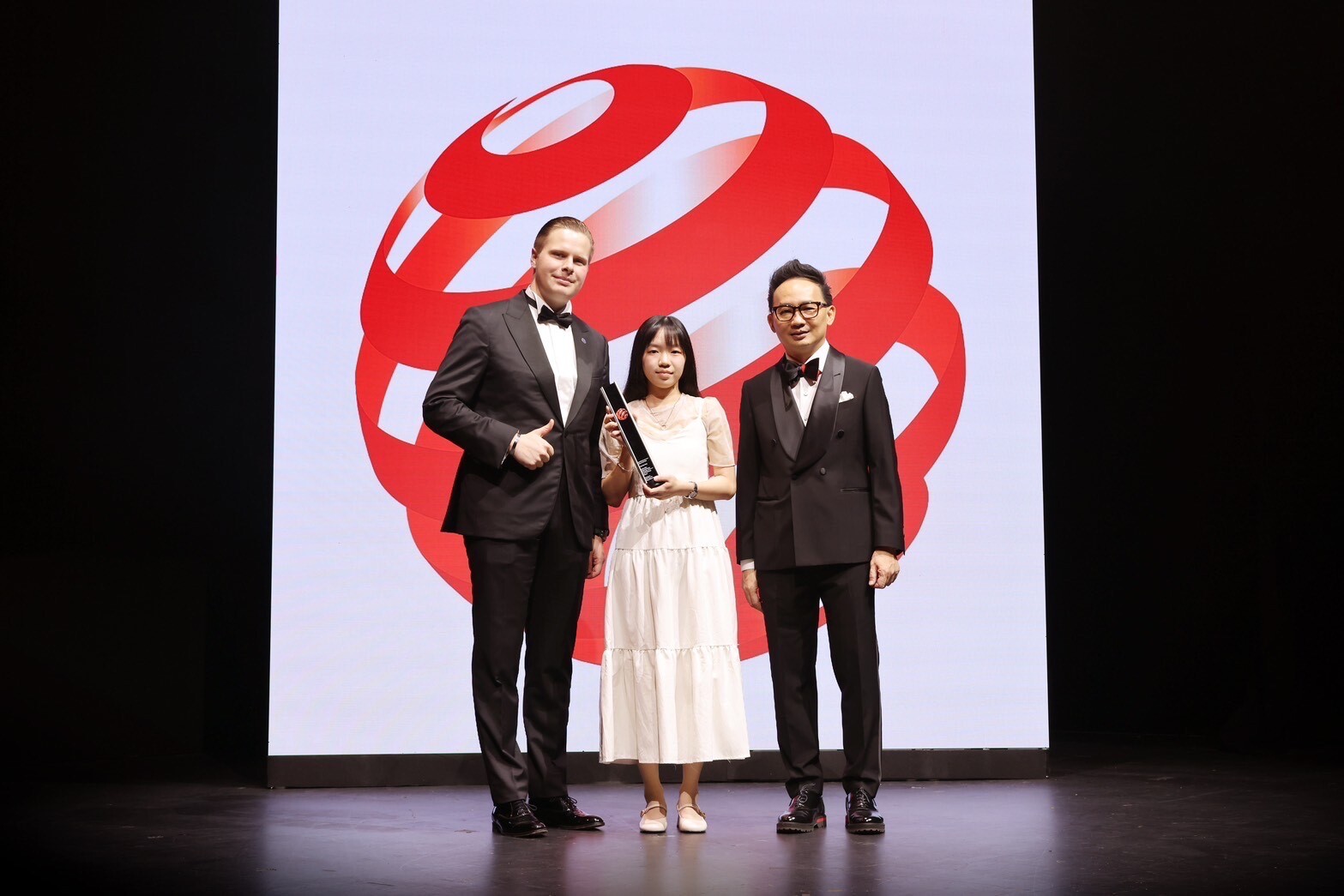
The “Han Guo Fang” design, created by Taiwan Tech Department of Design students Xun-Fei Hsiao (center) and Jing-Han Hong from the Business Design Group, won the Best Design Award in the Experience Design category.
Dean of the College of Design at Taiwan Tech, Ming-Huang Lin, expressed that the achievement of ranking first in the Asia-Pacific region for the Red Dot Design Awards is largely due to the guidance and dedication of the college’s faculty. He highlighted that students built a solid foundation through mutual respect and healthy competition, humbly accepting and refining the feedback provided by their instructors. This success is a result of the positive traditions established by past students and faculty.
This year’s nine award-winning designs include: an optimized animal adoption service, a plant improvement technique for Taiwan’s indigenous quinoa, fashion bags made from recycled umbrella fabric, an intergenerational educational rolling ball game, outdoor gear that converts into lifesaving equipment, a research vehicle adaptable to multiple terrains, an electric vehicle to improve urban logistics efficiency, an experience design that combines traditional Chinese medicine with desserts, and an interactive Taiwan Tech Department of Design students Jing-Han Hong and Xun-Fei Hsiao from the Business Design Group, won the Best Design Award in the Experience Design category. Inspired by the concept of “food and medicine from the same source”, the designers cleverly combined traditional Chinese medicine principles (the “Four Monarchs and Ministers”) with desserts and a multi-sensory experience. The design targets common modern ailments, such as light sleep, waking up tired, and other civilizational stress-related issues, by offering five corresponding experiences. The goal is to use desserts to alleviate physical and mental discomfort caused by modern stress, while also providing relaxation and therapeutic effects through sensory stimulation.
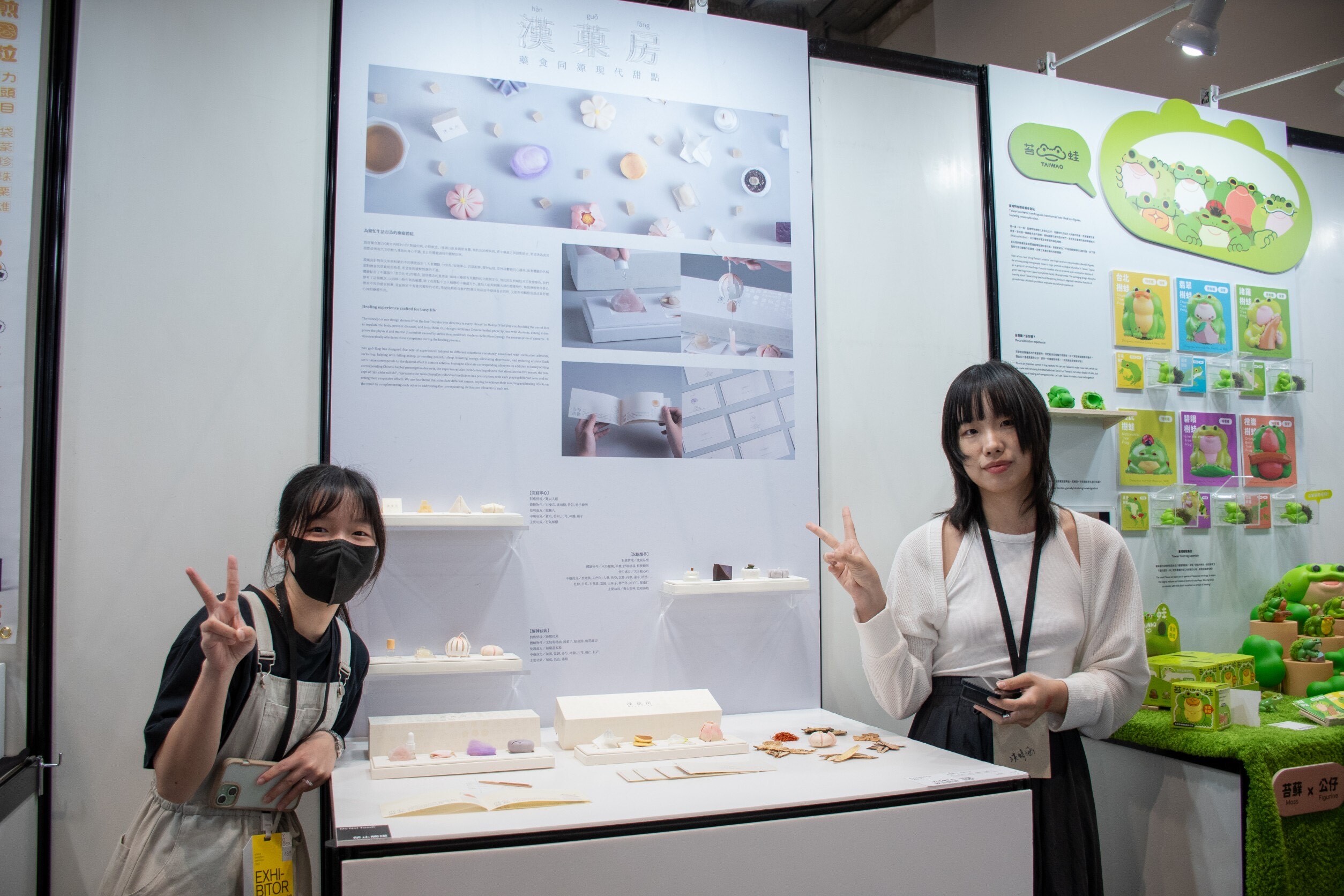
Design students Xun-Fei Hsiao (left) and Jing-Han Hong (right) developed their project based on the concept of “food and medicine from the same source”, cleverly combining traditional Chinese medicine principles, such as the “Four Monarchs and Ministers” with desserts, herbal prescriptions, and a multi-sensory experience.
Jing-Han Hong and Xun-Fei Hsiao shared that during the conceptualization phase, their project was sent back several times for revisions. It was through discussions with their advisor that the design gradually took shape. Upon learning that their once-in-a-lifetime graduation project had received such a prestigious award, they were both surprised and delighted. “This is the best recognition and reward for the hard work we’ve put in over the past year”, they said.
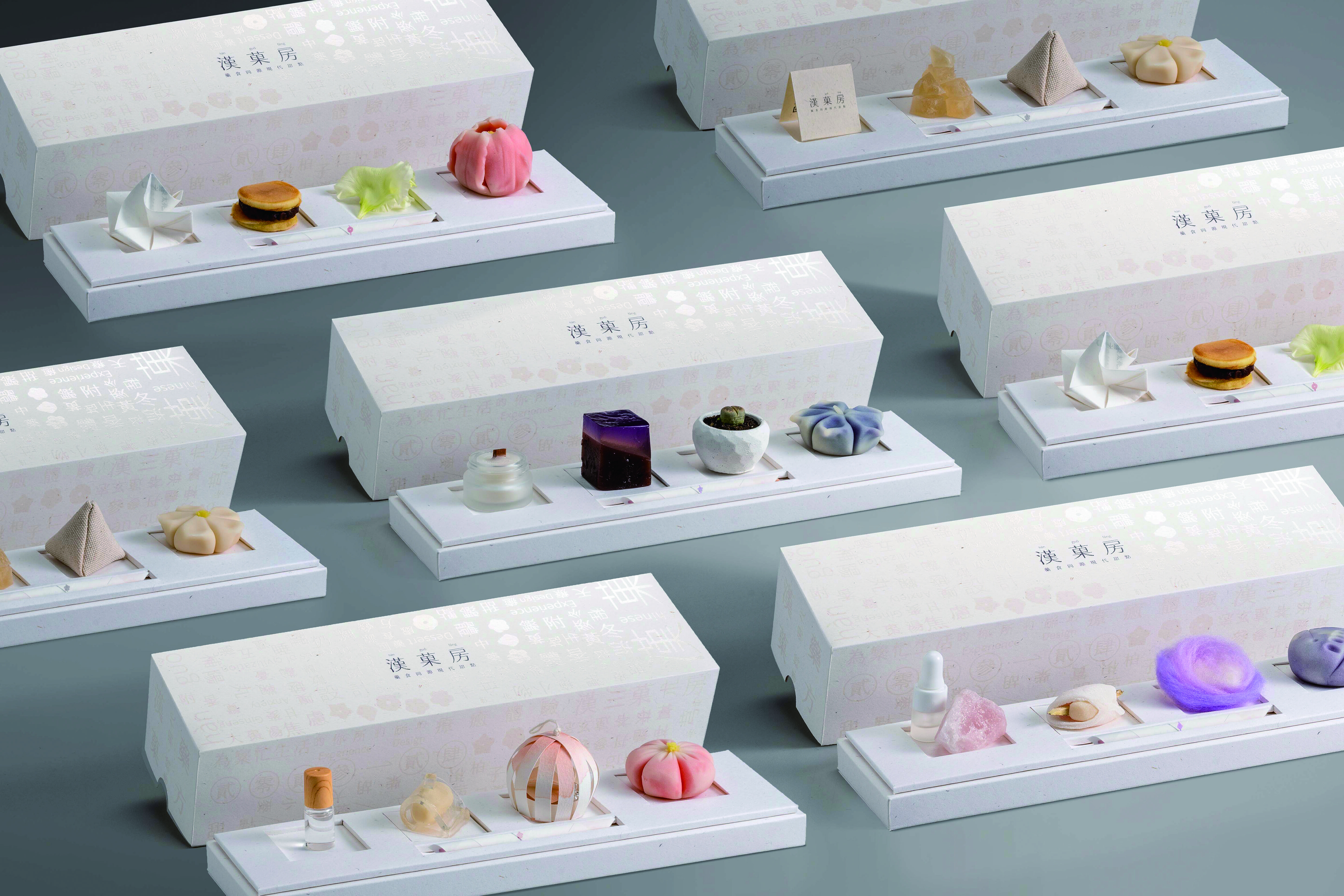
“Han Guo Fang” is an experience design created to address modern ailments, combining traditional Chinese medicine, desserts, and a multi-sensory experience. It won the prestigious Best Design Award.
Industrial Design students Yan-Xin Lin and Ting-Er Lin from the Department of Design won a Red Dot Award in the Product Design category for their work “Rain Seam HŌO-PHĀNG”. The project focuses on upcycling discarded umbrellas, and partnering with local umbrella manufacturers in Taiwan to collect failed prototype fabrics. After redesigning and re-cutting, they transformed the materials into a range of lightweight, waterproof everyday bags, giving discarded umbrellas new value through the concept of sustainable fashion.
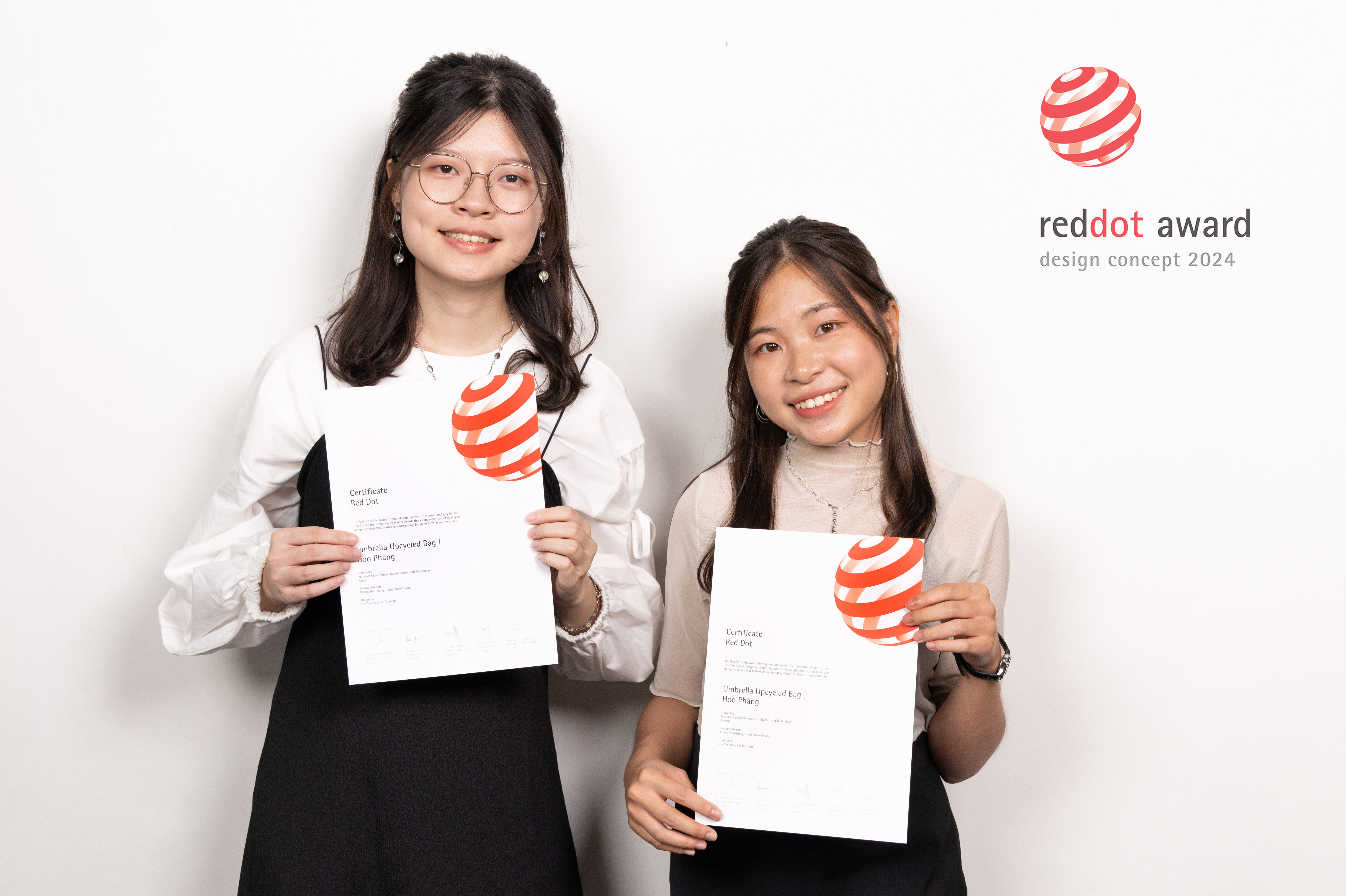
Ting-Er Lin (left) and Yan-Xin Lin (right) won the Red Dot Design Concept Award for their project “Rain Seam HŌO-PHĀNG”.
Yan-Xin Lin and Ting-Er Lin shared that some products can have a longer lifecycle than expected, and can be reimagined in new forms to satisfy consumers’ desire for innovation and change. Through their project, they hope to raise awareness about the importance of sustainable fashion. In the future, they aim to promote their design to umbrella manufacturers as a solution for upcycling umbrella waste, and even expand to recycling consumer-discarded umbrella fabric, further implementing the concept of a circular economy.
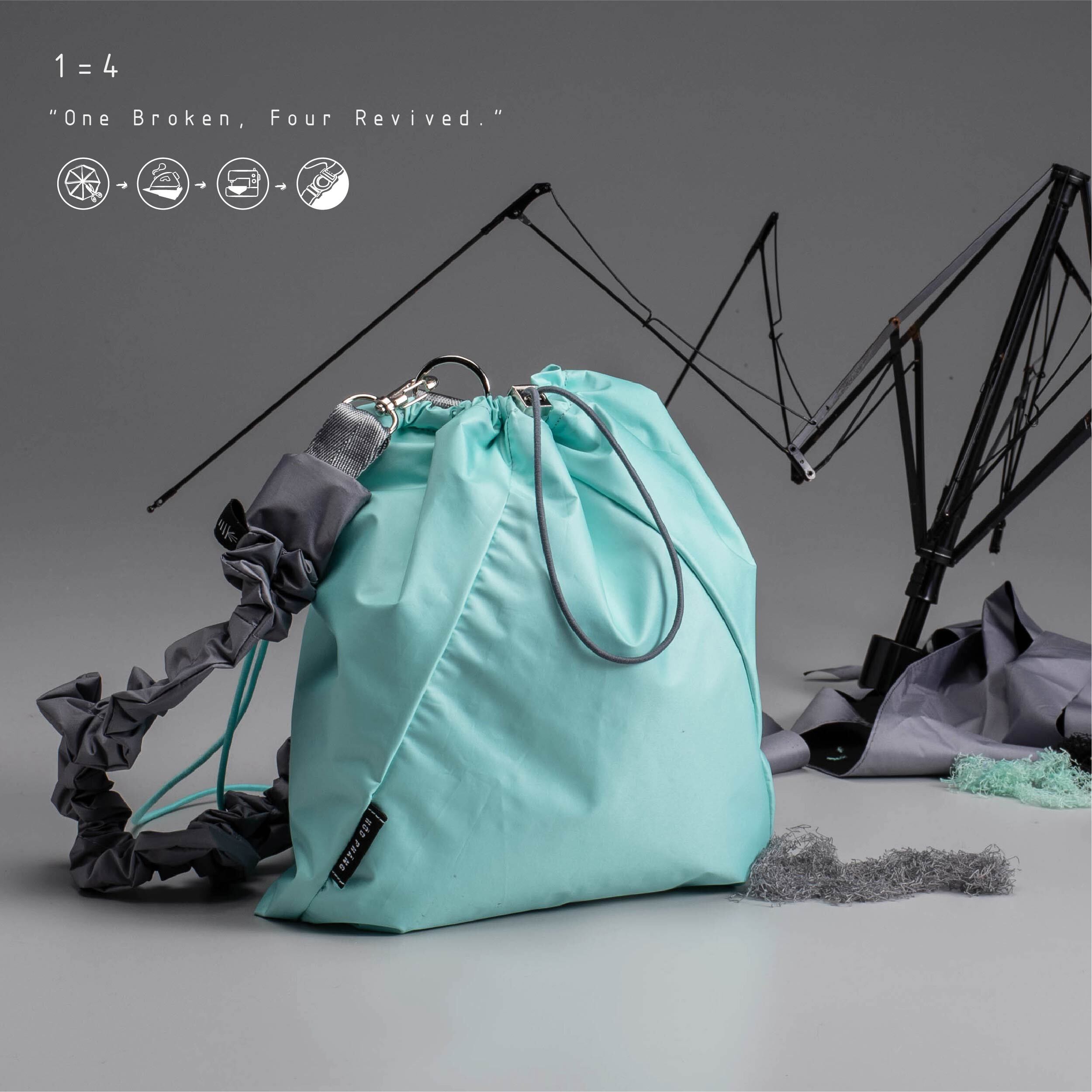
The “Rain Seam HŌO-PHĀNG” brand series of bags is made with over 90% secondary umbrella fabric. Each set of products helps reduce the waste of more than five umbrellas and indirectly cuts down on 35 kilograms of carbon emissions generated during material production.
Since Taiwan implemented its no-kill policy, animal shelters have faced increasing pressure. Taiwan Tech Master’s students Pei-Xin Xie, Wen-Ni Tsai, and Yu-Xin Lin collaborated with public animal shelters in Yilan and Hualien on their project “Adoption Service Design Connecting Humans and Animals”. They identified 15 key design solutions to address pain points in the adoption process, including space guidance, dog information cards, and pre-adoption self-assessment forms. These designs aim to enhance adopters’ autonomy and improve the human-animal compatibility, effectively reducing service disparities and labor costs. The project received recognition with a Red Dot Award in the Service Design category.

The “Adoption Service Design Connecting Humans and Animals” project introduced service design thinking and methods into public animal shelters. It proposed 15 design solutions to address core issues in the adoption process, covering areas such as space guidance, human-animal compatibility, service consistency, and pet owner responsibility education.
After implementing the project, the team compiled their experience into an “Adoption Service Optimization and Diffusion SOP”, with the goal of systematically promoting it to public animal shelters across Taiwan. They are currently in discussions with the Taoyuan Animal Shelter for future collaboration. The team emphasized that they will adjust and refine the solutions based on local characteristics to ensure shelters receive practical and applicable service designs. Their aim is to provide a smooth, thoughtful, and consistent adoption service experience for more adopters, while improving the efficiency of local government resource usage and contributing to animal protection in Taiwan.
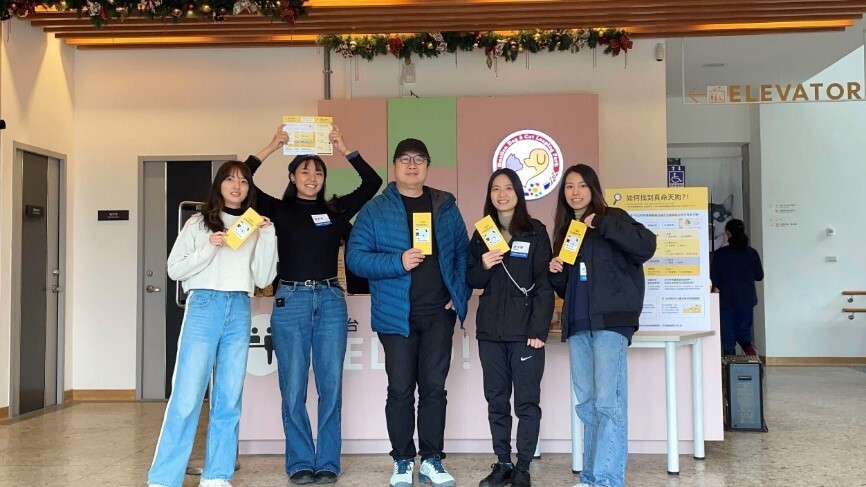
The “Adoption Service Design Connecting Humans and Animals” project by Taiwan Tech Master’s students Pei-Xin Xie (second from right), Wen-Ni Tsai (second from left), and Yu-Xin Li received the Red Dot Design Concept Award. Professor Hsien-Hui Tang at the center is their advisor.
